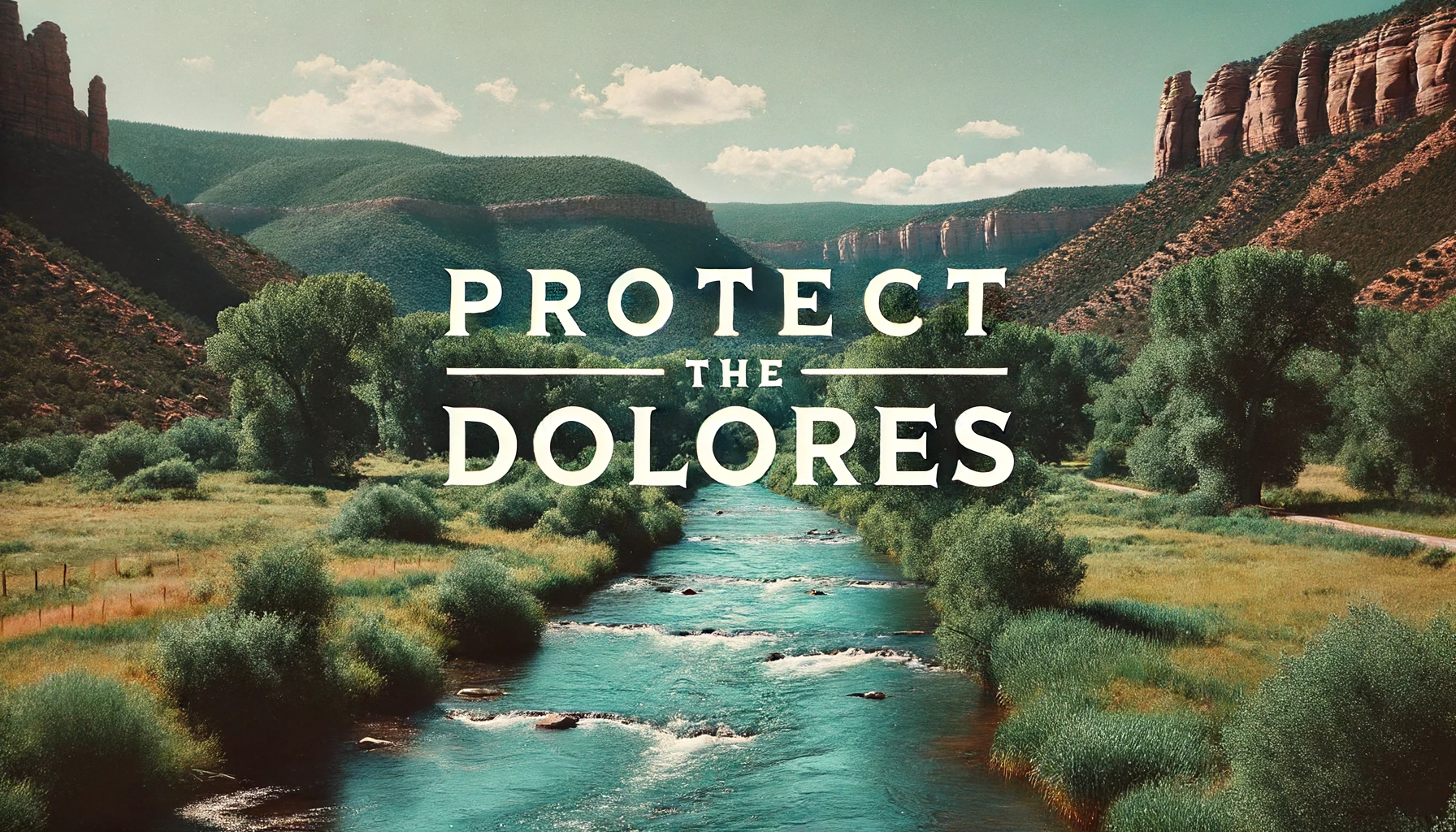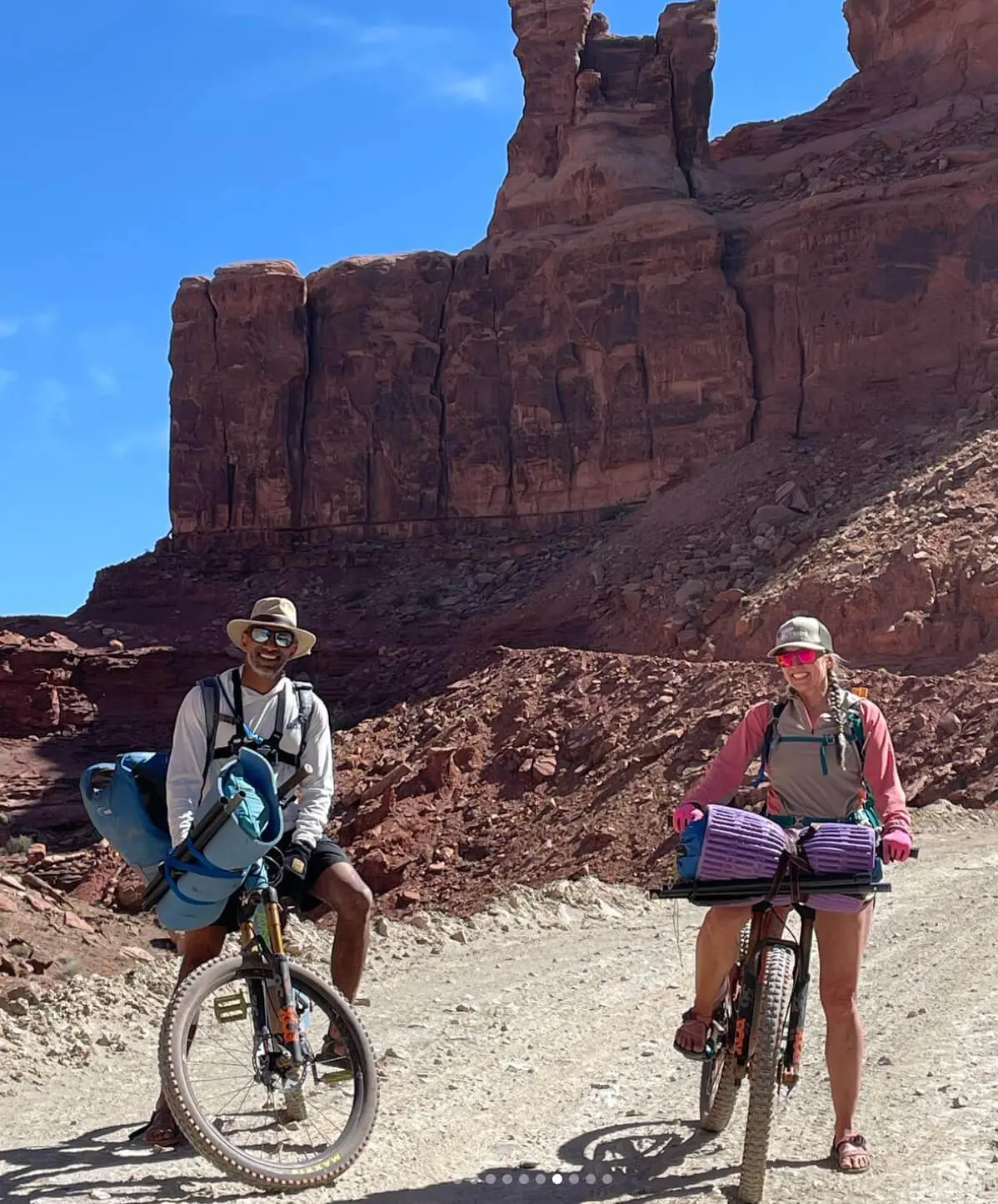Protect the Dolores: A Community at a Crossroads
On June 9th 2024, Sunday, I found myself traveling to Nucla, CO, after learning about it from The Conservation Alliance (TripOutside is a member company), for a public hearing attended by Senator Bennett. The journey began with a carpool from Durango, organized by several dedicated conservation groups. Among them was Gary from the San Juan Citizens Alliance, focused on wildlife initiatives like protecting wolves and bighorn sheep, and Chris, a former board member of the San Juan Citizen’s Alliance with a rich history in grant writing and legal aid on the Navajo Nation.
Also in the carpool was the team from The Conservation Lands Foundation based out of Durango: Asa, Julie, and Lauren, a grant writer and our driver for the day. Their organization advocates for proper management of BLM lands, securing funding, and training local groups. They even received a grant to educate on responsible recreation on BLM lands. Being surrounded by such passionate individuals was an inspiring experience for me.
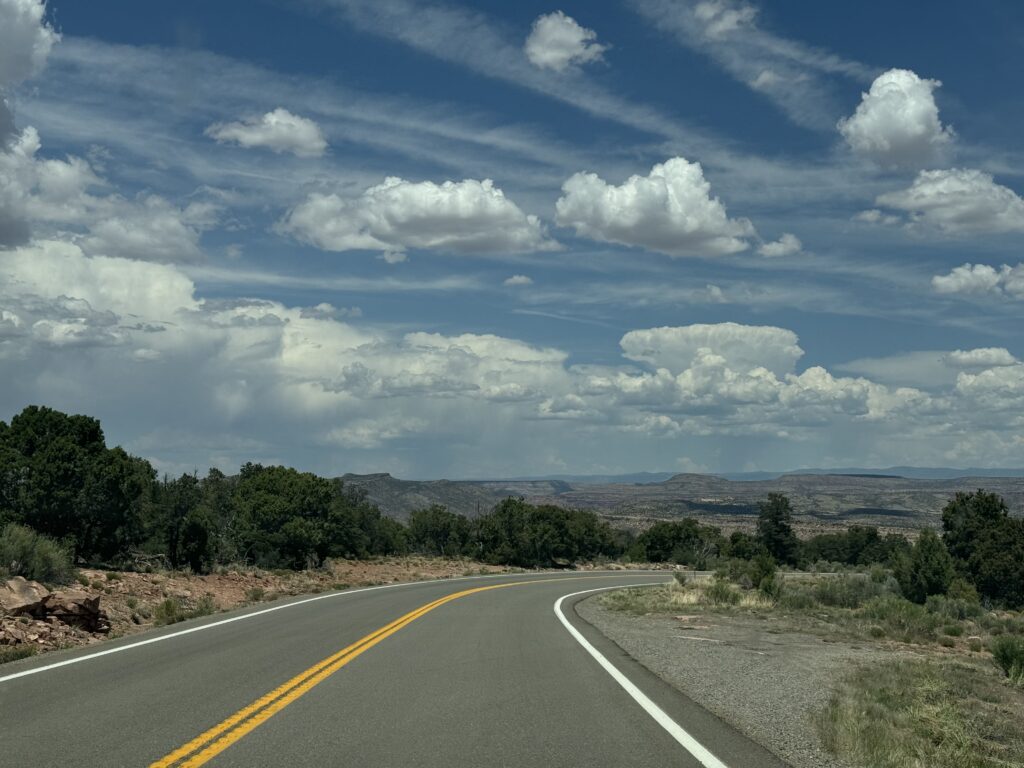
The car ride discussions were enlightening, touching on the new Public Lands Rule of 2024 and the work of the Mojave Desert Land Trust.
Upon arriving in Nucla, I reconnected with Cody from Protect the Dolores and Amber from the Dolores River Boating Advocates. Amber and I first met at The Conservation Alliance summit in 2023, where she highlighted the importance of the Dolores River area. It felt profound to now be part of a democratic process aiming to protect this region.
At the hearing, I sat next to Lindsey from Western Conservation. This was my first public hearing at 41, and I was inspired by the active participation in local democracy.
The Public Hearing
Senator Bennett began by expressing gratitude for the turnout on a Sunday, emphasizing the importance of such community involvement. He spoke about the economic disparities between urban and rural areas, his role on the agriculture committee, and the long-term implications of our decisions. He voiced concerns about the area becoming like Moab if not properly managed.
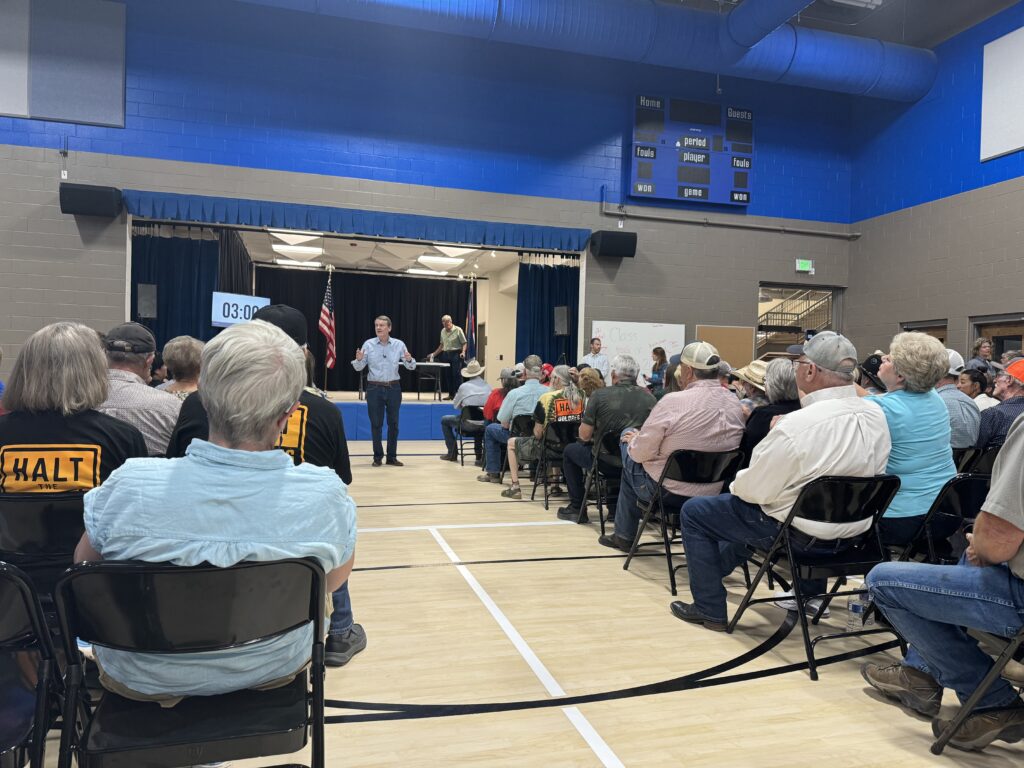
Summary of the supporters main comments:
The hearing featured voices from both sides of the national monument debate.
- Current protections are temporary and that the area deserves permanent protections.
- All existing uses would be protected including ranching, mining and hunting etc.
- The Dolores area is an incredibly unique river that offers remote, unplugged multi-day boating experience that is almost impossible to find outside of the Grand canyon.
- A BLM river ranger emphasizing the rarity of the multi-day boating experience on the Dolores River.
- Jim R. from the Wilderness Society stressed the importance of large landscape conservation.
- Rica from Dolores, highlighting the benefits of better management and infrastructure.
- Long-time activists like Teal from Durango and Suzanne from Cortez, advocated for the area’s protection for future generations.
- Many focused on emphasizing cultural preservation and adding local management.
- Sally from the Great Old Broads for Conservation, advocated for local involvement in management plans.
- Many addressed that the concerns about areas becoming National Monuments being overrun by tourists and destroyed pointed to Hovenweep NM and Canyons of the Ancient NM and how these areas did not get ‘destroyed by tourism’ as they transitioned to being National Monuments.
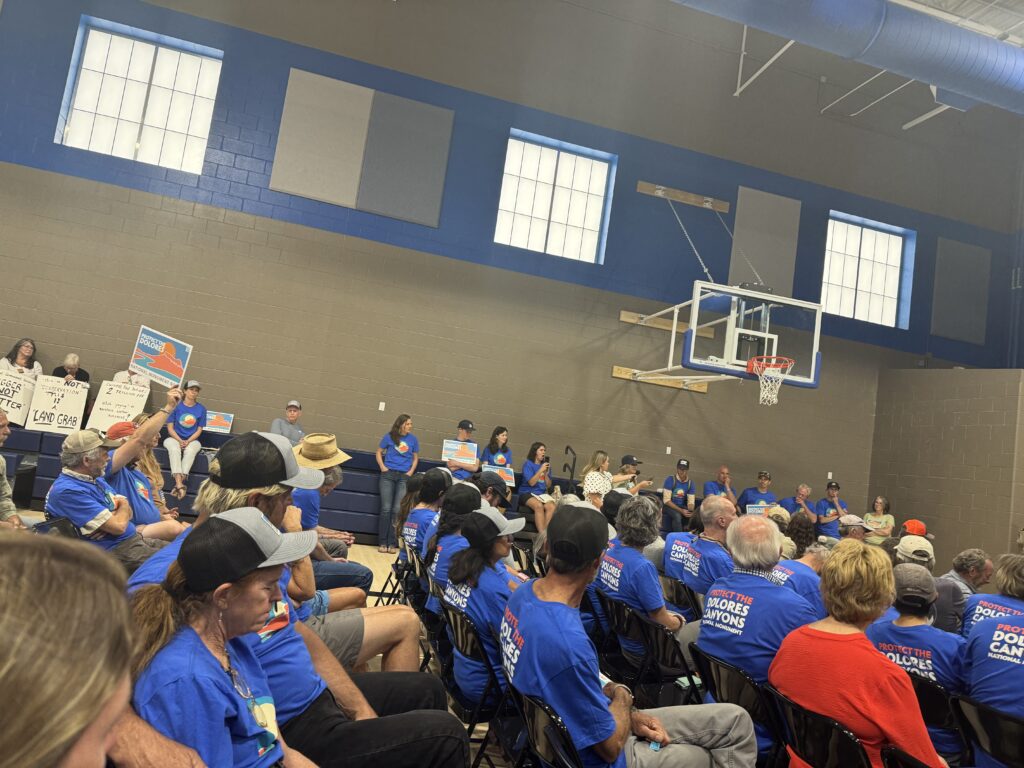
Opponents main comments:
- “We don’t want to turn this area into Moab’ was a common concern. It seems that the proximity of western CO to Moab and its similar landscape brought up concerns of over-tourism.
- Federal government’s over reach was a common concern, even though the land is currently managed by a federal agency (BLM).
- ‘The area is already protected as BLM, we already take care of it locally’ and that more protections are not needed.
- Dexter from Cortez and others opposing grazing restrictions and unnecessary monument status.
- Lisa from Grand Junction, worried about access for the disabled and elderly and the possible restrictions that may come to the UTV/ATV and off-roading community.
- Multigenerational ranchers and real estate holders feared federal overreach and economic impacts.
- Candidates for local office and local miners expressed concerns about losing local control and economic opportunities.
- Residents like Paul from Nucla, advocating for local-driven conservation efforts.
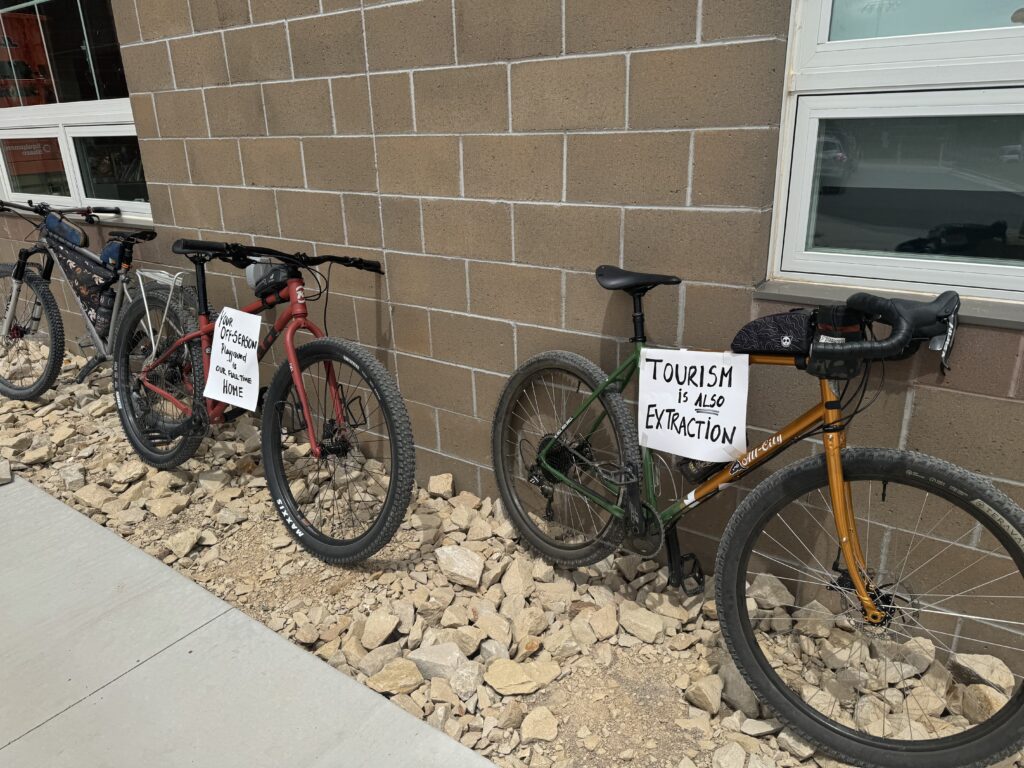
In general, there seemed to be a concern in the rural communities that tourists from all over would come to the area, overuse and abuse the area, and that the local community would lose control and the area would be significantly changed. The arguments ranged from the impact on local economies and traditional land uses to the importance of protecting natural and cultural resources. The community’s concerns about managing the potential influx of visitors were palpable.
Reflection
The underlying shared values that I gathered out of the hearing is that people on both sides care greatly about the area, although their concerns about its status and future planning vary. Everyone agrees that the area is special for its natural beauty and resources.
Attending this public hearing underscored the importance of engaging in the democratic process and advocating for the protection of our natural resources. Here are my key takeaways and personal reflections:
1. Permanent Protections are Critical
The Dolores River and its surrounding areas hold immense ecological, cultural, and recreational value. Establishing permanent protections is essential to preserve these resources for future generations. Without such measures, we risk losing the unique characteristics that make this region so special.
2. Learning from Overtourism
We must take lessons from places that have been negatively impacted by over tourism. Proper management is crucial to prevent similar issues in new areas like managing short-term rental permits to ensure that local housing remains accessible and affordable for community residents. This approach can help maintain the balance between welcoming visitors and preserving the quality of life for locals.
3. Inclusive Management and Implementation Plans
It’s vital that the management and implementation plans for the Dolores River include input from local citizens. The people who live and work in the area have valuable insights and a deep understanding of the land. Their involvement in the planning process will help create solutions that are both effective and respectful of the community’s needs and traditions.
Final Thoughts
This hearing was my first, but certainly not my last. The experience has inspired me to stay engaged in local and regional issues that impact our communities and the environment. It was encouraging to see democracy in action and to witness the passion and dedication of those advocating for the Dolores River. Moving forward, I am committed to supporting efforts that protect our natural resources and ensure that conservation strategies are inclusive and sustainable.

